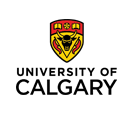
This month, the first of what will be a treasure trove of data from the 2011 census was released by Statistics Canada. To nobody’s surprise, Calgary is growing, and fast! The news coverage was triumphalist, we’re-better-than-you-are kind of stuff. Perhaps that would be warranted if the end goal is to grow fast and get big.
In fact, many years ago sociologist Harvey Moloch coined the phrase “growth machine” to describe what goes on in cities. As Moloch explained it, developers, businessmen and politicians literally treat a city as a giant machine designed to manufacture wealth and enhance their political and economic power all while extolling the supposed benefits of growth — improved quality of life and well-being for all citizens. Growth becomes a surrogate for all that is virtuous.
Alongside the census story were a number of other stories that haven’t gotten much play, but do make a strong case that we are, in fact, cogs in a growth machine and it is not delivering the goods.
Exhibit one: The number of homeless counted in 2012 is seven times what it was in 1992. Yes, the count shows a decrease of 11.4 per cent since 2008, but even that decrease is questionable given the move of the count from June to a bitterly cold January day. In the wake of the census data, The Homeless Foundation warns against coming to Calgary if you do not have secure accommodation.
Exhibit two: Poverty Costs, a report released by Vibrant Communities Calgary, reveals a number of startling statistics. Almost 400,000 Albertans are living in poverty; Alberta has a higher debt-to-income ratio than the Canadian average; and the province has the highest gap between rich and poor in all of Canada. The report finds that even from a financial perspective, tolerating poverty is a bad idea. The cost to our economy in health care, crime and lost economic productivity is between $7 billion and $9.5 billion annually.
To read the full article by EVDS' Noel Keough and Urban Studies Geoff Ghitter in FFWD Magazine, click here.

